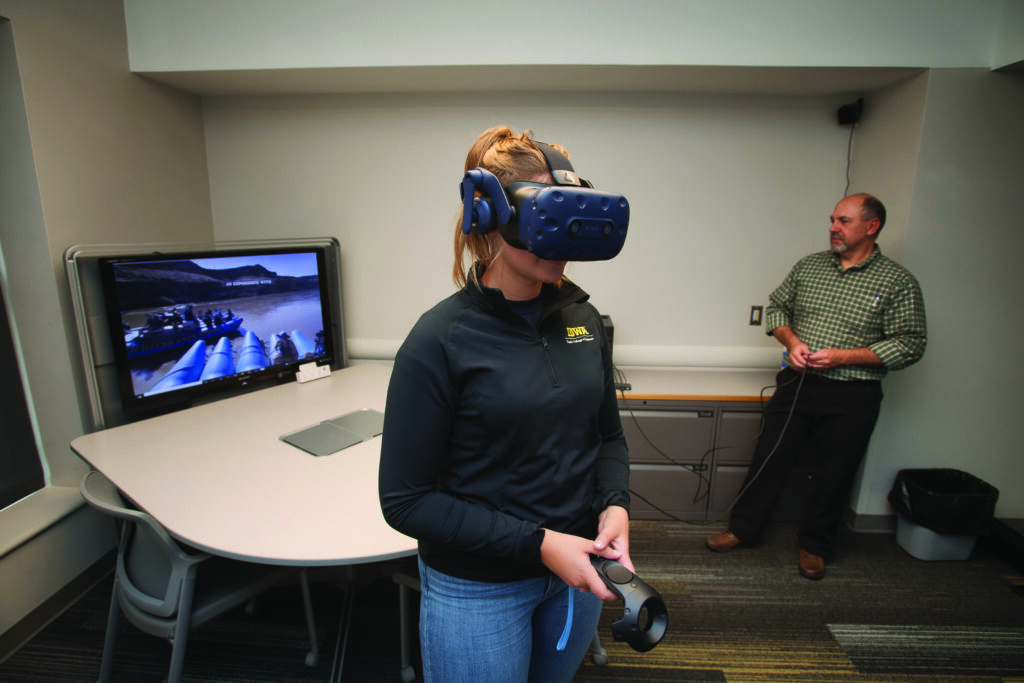Real Success: Mike and Nate Dunn with F&M Bank
Nate Kaeding

Jim Chaffee and Tippie student Isabel Anderson work with some of the college’s virtual reality technology. CREDIT JUSTIN TORNER
A collection of avatars attended a ribbon cutting event for a virtual University of Iowa April 6, where students will be able to go on campus tours and take advantage of unique educational experiences.
The first business school in the Big Ten to unveil a dedicated metaverse, university officials hope it will be the first iteration of a tool to recruit international students unable to tour campus in…

Get immediate, unlimited access to all subscriber content and much more.
Learn more in our subscriber FAQ.
Do you want to read and share this article without a paywall?
